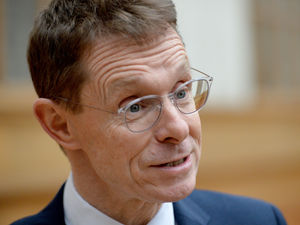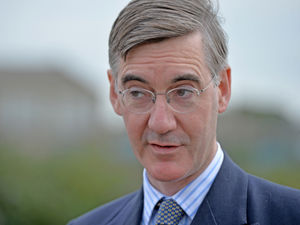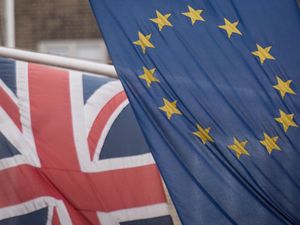German MEP: UK will live to regret its Brexit mistake
Jakob von Weizsäcker cuts an imposing figure as he welcomes me into his office in the European Parliament in Brussels.
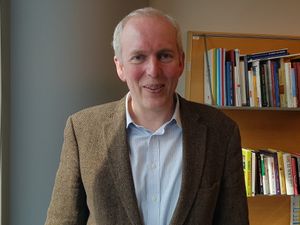
Standing at around six foot six, the German MEP has a reputation for straight talking and insightful analysis - the latter skill he no doubt honed during stints as an economist at the World Bank in Washington DC and as a resident fellow at the influential economic think-tank Bruegel.
And when it comes to Brexit, von Weizsäcker is unequivocal in his views.
For him it was 'a mistake' prompted by some British voters being 'misled' during the referendum, resulting in the EU being left in 'a mess'.
As a result, he argues, Britain will almost certainly end up worse off economically in terms of its relationship with the bloc.
"I can certainly say I very much regret Brexit," said von Weizsäcker, who is a member of the centre left Party of European Socialists in the EU.
"It is fair to say that both inside Britain and in the EU we are finding out the hard way that perhaps some of the promises and expectations that people had when they voted for Brexit were not entirely realistic.
"In some instances I fear that some people might have been misled.
"Of course I believe in the principle of democracy, but I certainly feel like many people that we are not fully aware of all the implications that the decision of the British people entails.
"I was taken a little bit aback by some of the claims that were made by Brexit advocates at the time [of the referendum]. Many people voted for Brexit fundamentally because they wanted to leave, that much is clear.
"But we should not be surprised by the mess we are in right now. I fear that some unreasonable expectations had been raised and of course, afterwards it has proved to be impossible to meet them."
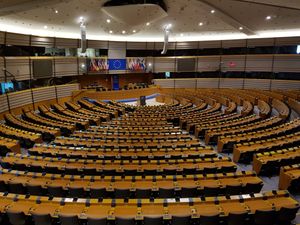
Describing the Brexit vote as 'a negative', von Weizsäcker continued: "It makes Europe weaker and it makes Europe poorer that Britain is leaving. In the end if a country chooses to leave, what can you do?"
Coming from a prominent family of politicians and intellectuals - his great uncle is former German president Richard von Weizsäcker - the MEP spent three years studying in Britain as a teenager.
He says he is 'very fond' of Britain and that for him the Brexit vote was 'a great pity'.
But he warned that the EU would have 'little interest' in giving Britain a special deal in the Brexit negotiations. He said the EU would 'initially impose a very significant cost, both economically and politically' on Britain.
"A life outside the EU, even though it may be a little bit poorer, and even though I happen to think it is a mistake, I think it is possible," he added.
"I wish Britain well. I don't think the EU has any intention of trying to make life difficult for Britain, but obviously at the same time there is little interest in giving Britain a special deal where it could enjoy only the benefits and advantages of membership without also engaging in some of the contributions which we ask from our members.
"That's something the EU will be very firm on."
He added that Britain would find it hard to compete with an EU 'that is working well', but conceded that the bloc had 'important issues' that needed to be solved.
"There are so many problems and so many challenges that today can no longer be solved at the level of the nation state," von Weizsäcker told me.
"In principle, the EU creates tremendous value for its members. It is very hard to compete with an EU that is working well.
"Leaving the EU and trying to make it on your own is very, very difficult. The answer to what is life like outside the EU very much depends on how well the EU is working.
"Clearly, there are some important issues that we need to solve inside the EU. One of them is the workings of our common currency, which indirectly affected the UK.
"There are issues there that still need to be sorted out but I think we will eventually tackle them. There is also a need to make the Schengen system [the EU's free movement agreement] work better.
"I am personally optimistic in our ability to solve these problems. I think in the long run for Britain it would have been better to stay in the EU and work with the other member states.
"Sometimes here we are not collectively fast when it comes to decision making, but in the long run we are perfectly capable of sorting ourselves out."
According to von Weizsäcker, there has been one major positive to come out of the Brexit vote.
He said: "Some of the voices in other member states calling for their countries to leave the EU have quietened down quite a bit since it became clear as to what Brexit actually entails.
"In some respects we are very much seeing a stabilisation of the EU."


